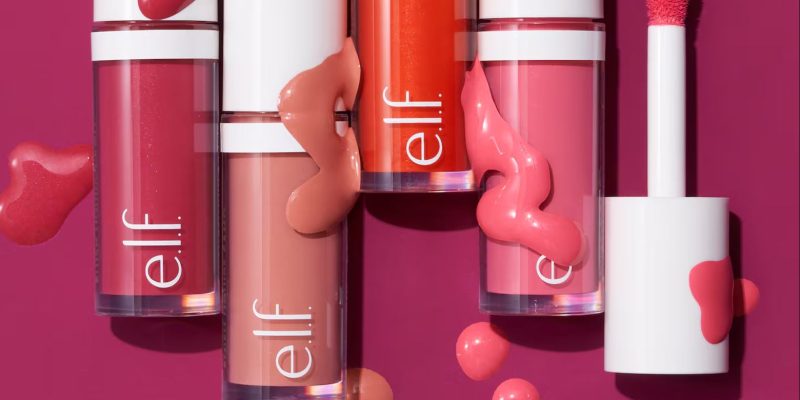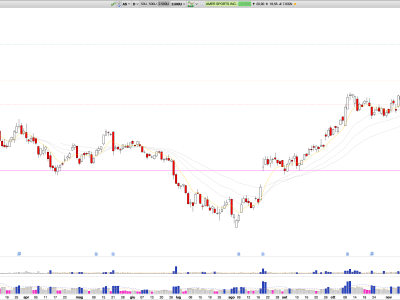
Elf Beauty, a rising star in the cosmetics industry, is pushing back against allegations by activist short-seller Muddy Waters, which accused the company of overstating revenue and inflating inventory.
In a statement released Thursday, the Oakland-based firm dismissed the claims as “without merit,” asserting they were designed to manipulate its stock price for Muddy Waters’ financial gain.
Despite the controversy, Elf Beauty remains a standout in a challenging beauty market, posting impressive growth and outperforming legacy brands like Estée Lauder and L’Oréal.
Muddy Waters claimed Elf overstated revenue by $190M
The allegations surfaced Wednesday when Carson Block, CEO of Muddy Waters Capital, announced at the Sohn Conference in London that his firm had taken a short position against Elf Beauty.
Block claimed the company had potentially overstated its revenue by as much as $190 million over the past three years and inflated inventory numbers to obscure weak sales.
Block’s remarks triggered a sharp reaction in the market, with Elf shares plunging by 16% at one point before recovering to close 2.2% lower at $119.
The stock, which has nearly quadrupled since 2023, remains under investor scrutiny.
“Elf. Beauty is overstating its success,” Block said, citing inventory build-up as evidence of declining demand.
The company, however, had previously attributed higher inventory levels to supply chain adjustments and robust consumer interest.
Elf responds with confidence
In its Thursday statement, Elf Beauty strongly refuted the allegations, emphasizing its commitment to transparency and shareholder value.
“Muddy Waters’ latest report is an attempt by a noted short-seller to negatively impact Elf Beauty’s share price for its benefit and at the expense of all other shareholders,” the company stated.
The cosmetics firm also clarified that much of its import data has been confidential since February 2024 due to a request filed with US Customs and Border Protection.
“Import data available to the public does not include a substantial majority of our actual US imports,” the statement added, indirectly addressing claims about inventory misrepresentation.
ELF: strong financial performance
Elf Beauty’s financial resilience has set it apart in a beauty sector grappling with slowing demand.
The company recently raised its annual sales and profit forecasts, buoyed by strong consumer interest in its affordable, high-quality products.
For the quarter ending September, Elf reported net sales of $301 million and adjusted net income of $45 million, exceeding Wall Street expectations.
Despite relying heavily on China for 80% of its supply chain, the company has maintained an average product price of just $6.50, appealing to cost-conscious consumers.
In contrast, industry giants like Estée Lauder and L’Oréal have struggled to navigate shifting consumer preferences and economic headwinds, making Elf’s growth even more noteworthy.
Muddy Waters’s short-selling tactics
Muddy Waters, known for its aggressive short-selling tactics, has a track record of targeting companies with allegations of financial misconduct.
Its previous campaigns include accusations against Sino-Forest Corp., which eventually filed for bankruptcy, and bets against firms like Blackstone Mortgage Trust and Eurofins Scientific SE, both of which saw significant stock declines.
Activist short-selling often sparks heated debates. While some allegations lead to regulatory action and corporate reforms, others are criticized as opportunistic attacks lacking substantial evidence.
Should you buy ELF stock?
Despite the market turbulence, Elf Beauty’s fundamentals remain strong, supported by robust revenue growth and expanding market share.
Elf Beauty has emerged as a prominent player in the mass cosmetics market, experiencing substantial growth over the past few years.
The brand has gained market share from established competitors by offering affordable products and leveraging social media influencers to connect with younger consumers.
The company continues to explore growth opportunities, both internationally and in adjacent categories like skincare.
Elf recently acquired Naturium, a skincare brand, in October 2023, to strengthen its presence in the skincare market.
Early results from international expansion have also been promising, suggesting potential for further growth.
Additionally, the company may eventually consider entering other categories, such as fragrance.
From a valuation perspective, Elf Beauty trades at a forward price-to-earnings (P/E) ratio of 31 based on fiscal 2026 projections.
Its price/earnings-to-growth (PEG) ratio is currently 0.6, which is often considered undervalued for growth stocks.
Companies in similar high-growth segments typically have significantly higher PEG multiples.
Given its attractive valuation and continued growth prospects, Elf Beauty could be a smart option for investors seeking exposure to the consumer growth sector.
The company’s ability to weather the storm of activist short-selling could further bolster investor confidence in its long-term prospects.
As the dust settles, analysts and investors will watch closely to see whether Muddy Waters’ allegations gain traction or fade in the face of Elf’s robust defense.
The post Elf Beauty dismisses Muddy Waters’ fraud allegations: is ELF stock a buy now? appeared first on Invezz











